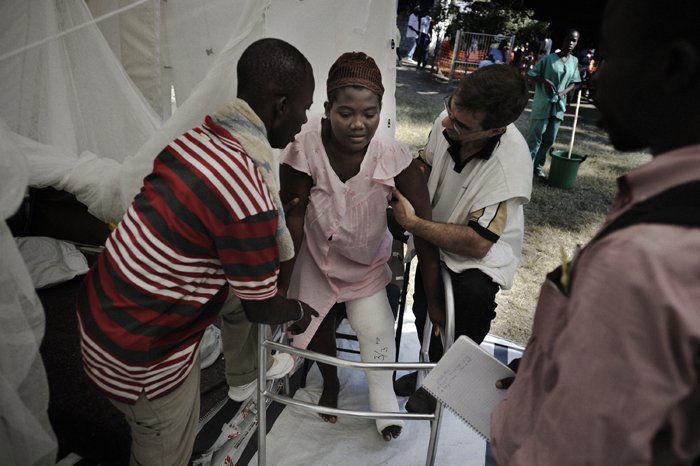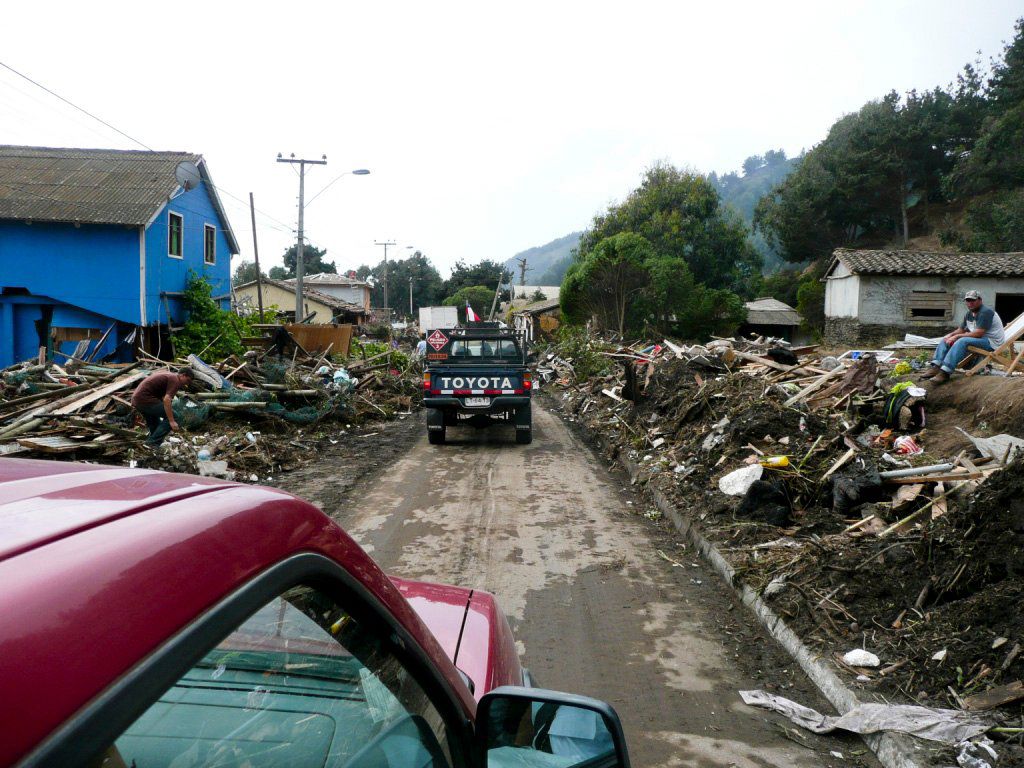Seven weeks after the earthquake of January 12, which left up to 300,000 people injured, medical needs remain immense in Haiti, and they continue to grow. A crucial phase has begun, in which thousands of injured people require long term medical care just as some health providers that responded to the initial emergency phase of the crisis begin to leave the country and discharge patients.
MSF is expanding its capacity to care for the many wounded requiring extensive postoperative care—including secondary surgeries, medical follow-up, physical therapy, and mental healthcare—for at least the next several months. In recent days, public hospitals or other medical teams leaving the country have referred more than 200 patients to MSF medical facilities. .
"The immediate emergency phase may be over, but the long-term work is just beginning and it’s no less an emergency," said MSF Haiti Head of Mission Karline Kleijer.
Patients requiring daily medical supervision
Every day, patients require bandage and dressing changes, cast removals, wound cleaning, removal of dead tissue, external fixator adjustments, x-ray monitoring of fractures, skin graft monitoring, and reconstructive and other specialized surgery.
"Emergency surgery is one thing, but lack of or inefficient post-operative care will result in long-term hospitalization or even in livelong physical disabilities," declares Dr Nico Heijenberg.
After weeks of immobilization as a result of traction, casts, external fixators, and amputation, patients are just beginning to regain mobility through physiotherapy. People who had limbs amputated may require additional procedures to ensure the good fitting of artificial limbs.
"Returning patients home in their current medical—and living—conditions is simply not an option for us," said Dr. Michel Janssens, director of the MSF hospital in the
Essential Psychological Care
Another critical element of postoperative care is the psychological monitoring and counseling of patients. For people who suffered horrible injuries, counseling and psychological support is as vital as physiotherapy and learning how to use crutches.
Mental health services are being provided by MSF s throughout the city.
Survivors of the earthquake are often very anxious about their future.
"I was an electrician, and who's going to hire a disabled person?" asked Ricardo, a 33-year-old father who suffered severe burns to his hands in the earthquake. "How will I find work to support my family?"
MSF will soon open additional post-operative facilities—that will operate for at least one year—in



